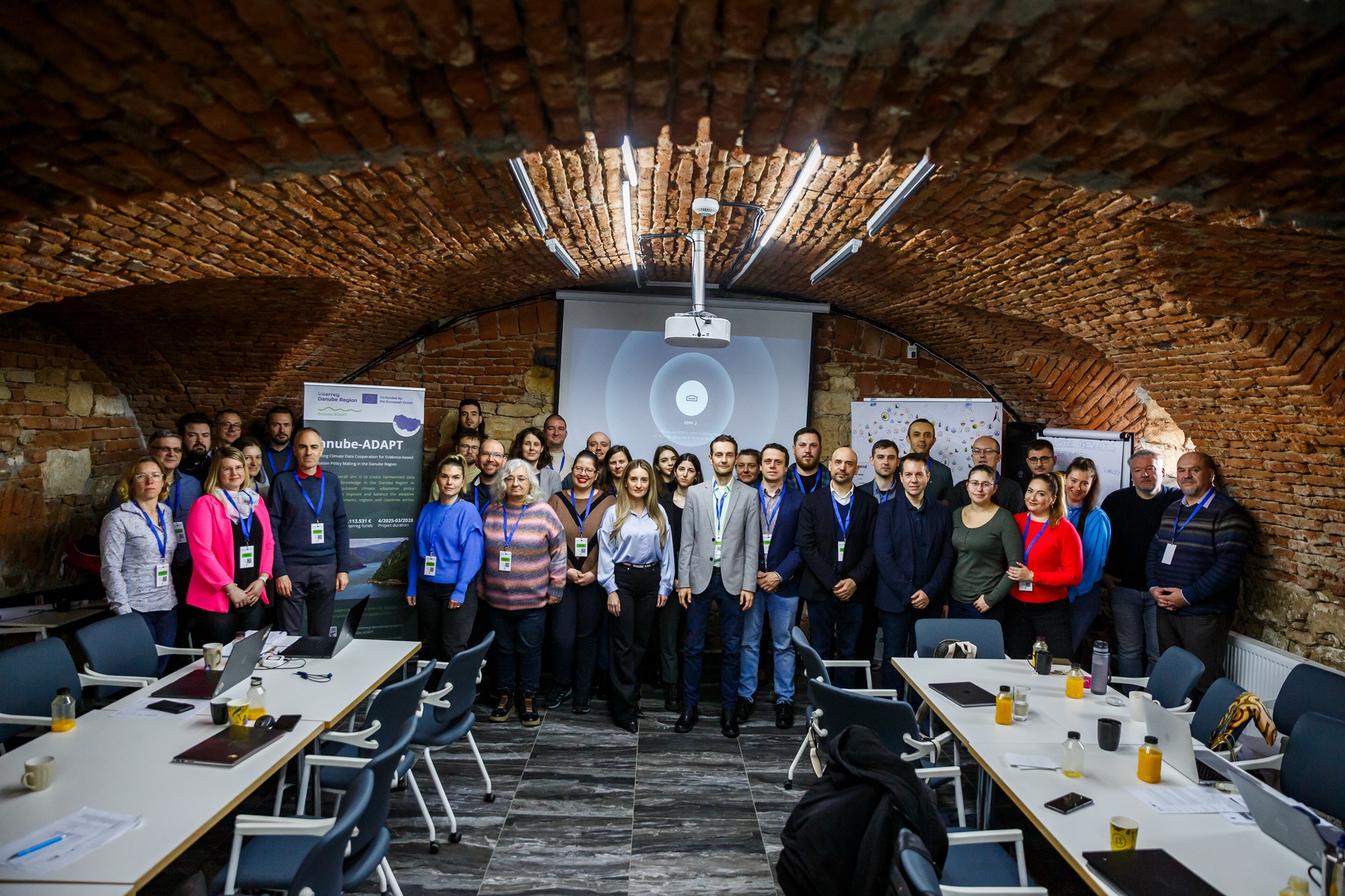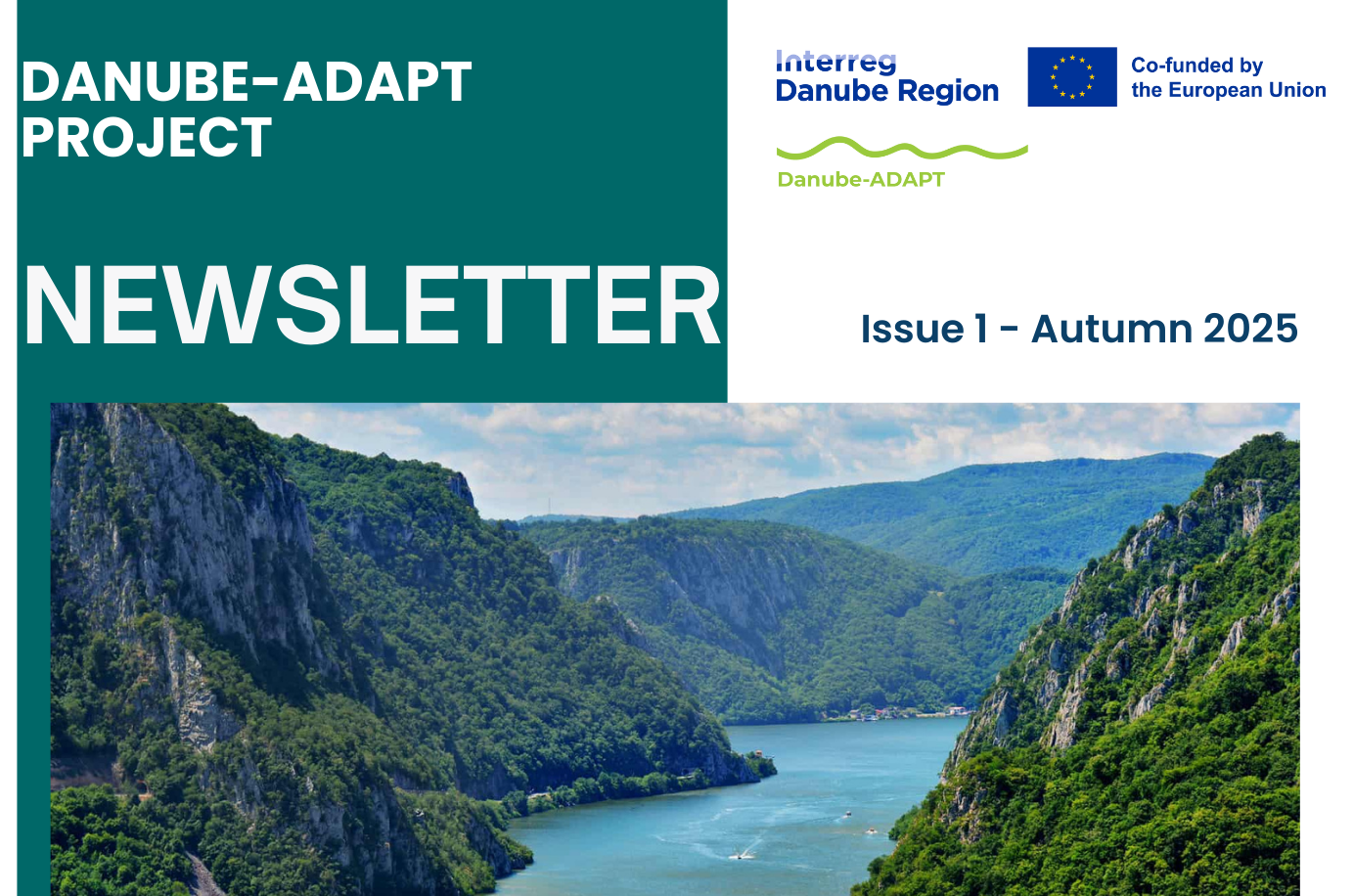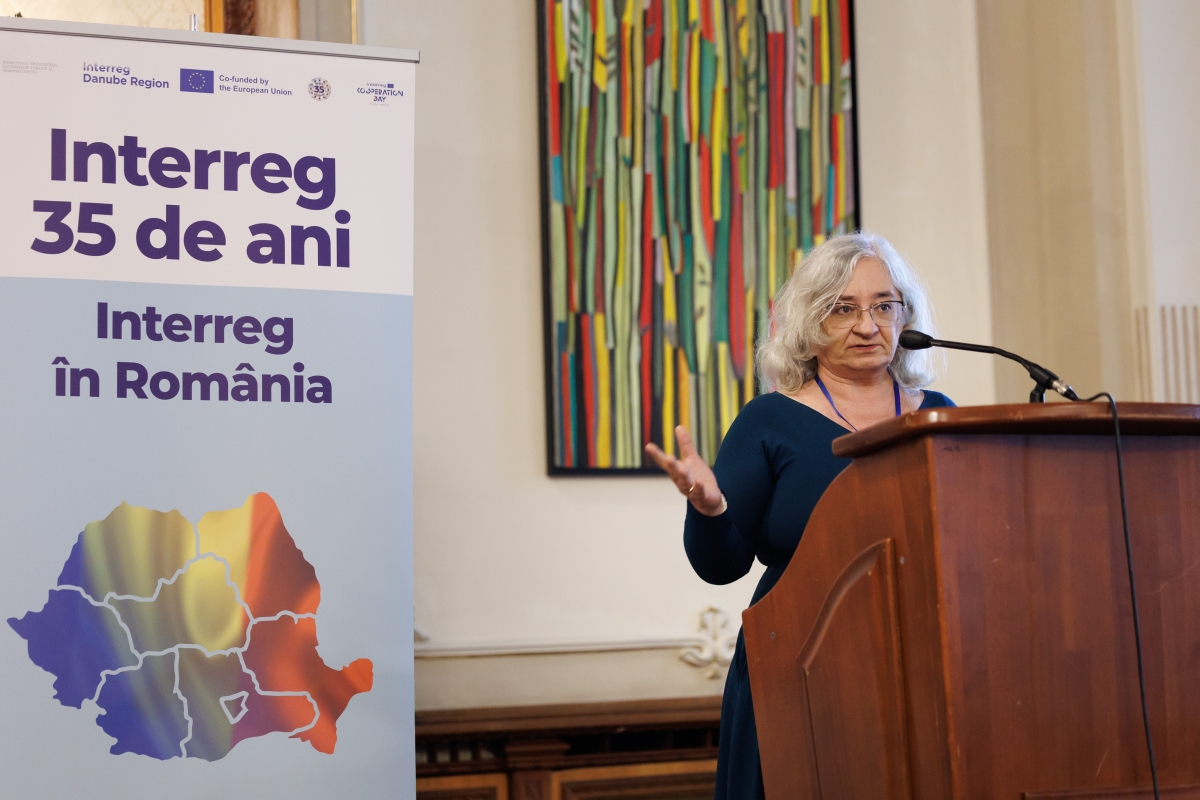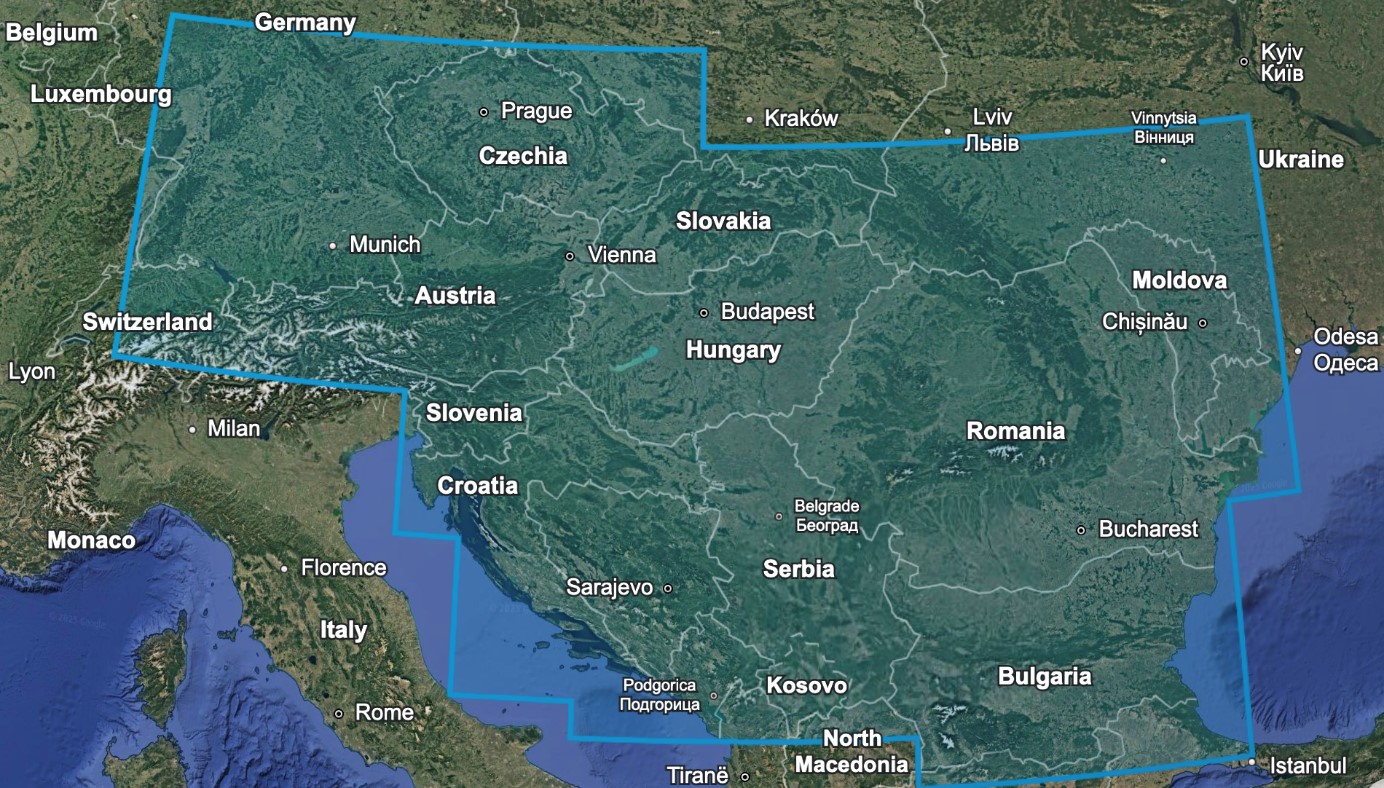
Danube-ADAPT
Enhancing Climate Data Cooperation for Evidence-based Adaptation Policy Making in the Danube Region
The project’s overall aim is to create harmonised data availability and knowledge in the Danube Region to support evidence-based climate adaptation policy making, and thus improve and balance the adaptive capacities of settlements, regions and countries across the Danube Region. Project ID: DRP0301445

How does climate change affect the Danube Region, and what are our common challenges?
The Danube Region, home to 115 million people, is expected to face significant challenges from climate change. These challenges affect communities at every level—local, regional, and across the wider area—and vary depending on the natural environment, hydrological systems, and social and economic conditions of each place. Some impacts are felt across the entire region, while others create more serious difficulties in specific areas, including across borders. Often, several countries experience these effects at the same time, presenting common challenges for policymakers, even though each subregion may be affected differently. Addressing these issues effectively requires approaches that go beyond national boundaries while also providing solutions tailored to the particular needs of each part of this interconnected region.
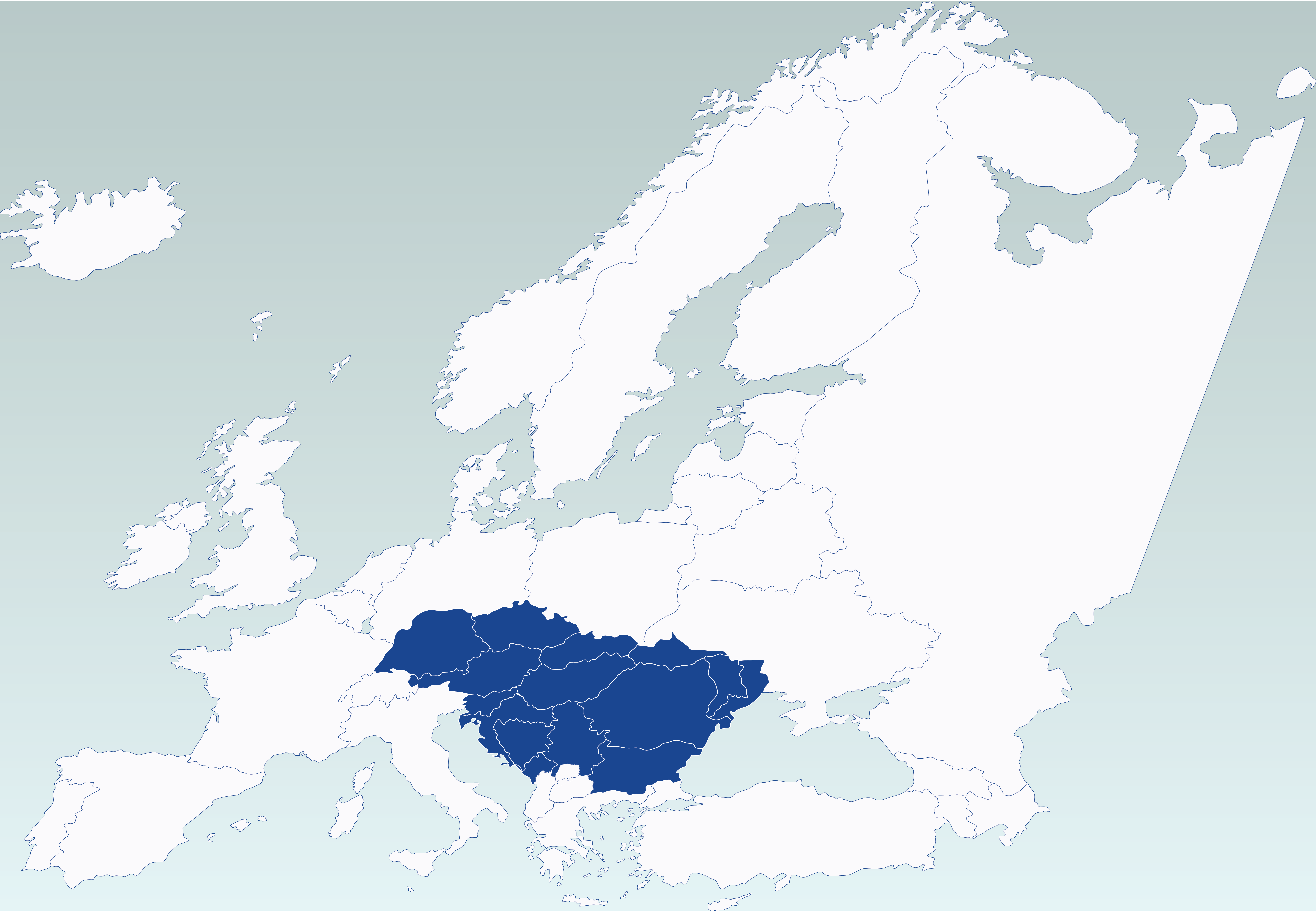
What are the key objectives of the project, and who are the participants?
The Danube-ADAPT project aims to improve access to data and knowledge across the Danube Region to support informed climate adaptation decisions. Its goal is to strengthen and harmonize the ability of communities, regions, and countries to respond effectively to climate challenges. To achieve this, the project brings together a diverse partnership of organisations from ten countries in the region, combining expertise from scientific, policy, and advisory fields. Together, the partners share a wide range of climate information, practical experience, and insights into adaptation strategies, covering all levels of governance.

What are the main expected outcomes of this 36-month international project?
The project focuses on strengthening climate adaptation across the Danube Region by harmonizing regional data and creating integrated, evidence-based policy tools. It will establish a high-quality climatological database combining past observations with future projections, forming a solid base for vulnerability assessments. Building on shared methodologies, the project develops data-driven solutions tailored to the region, led by a Vulnerability Assessment Framework that evaluates risks using standardized indicators and pilot testing. By making assessment results comparable across the region, the project supports the transfer and replication of adaptation strategies. It also promotes the integration of findings into policy through the Danube-ADAPT Platform, helping decision-makers use data effectively. Additional efforts include raising awareness, providing e-learning resources, and offering guidance for improving national climate adaptation policies. Overall, the initiative aims to reduce gaps in knowledge and capacity, while fostering cross-sector and international collaboration to support informed climate action.
News & Events
Read the most recent updates and explore the upcoming events.
Project overview
Need any help? Contact us!

Elisabeth Magyar
Project manager

Attila Sütő
Senior climate policy expert; Chief climate strategic planner

